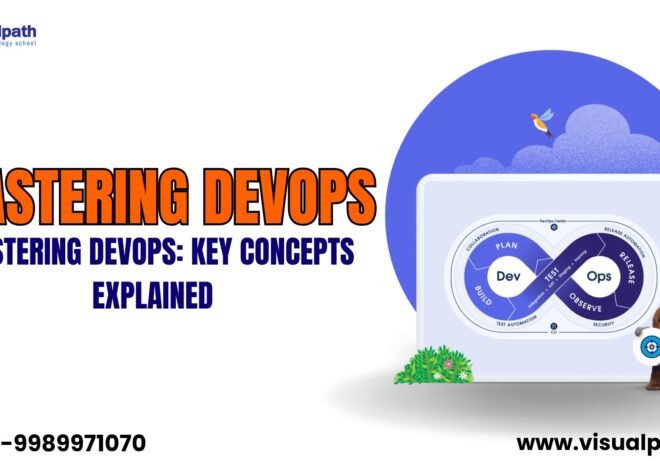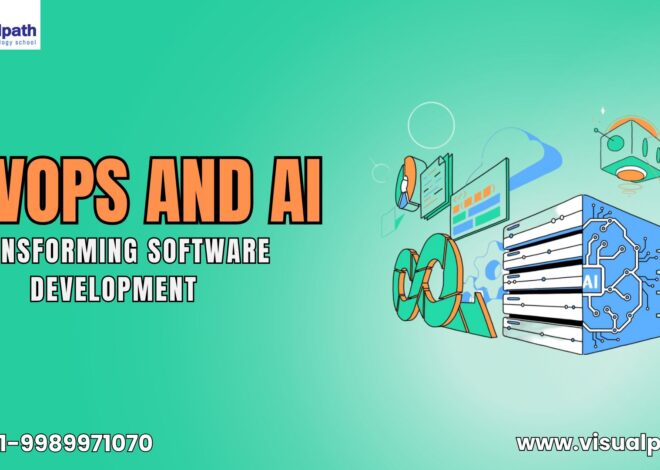DevOps, a portmanteau of “development” and “operations,” is more than just a technical term. It’s a cultural shift, a set of practices, and a philosophy that aims to bridge the traditional silos between software development and IT operations teams. This fosters collaboration, breaks down communication barriers, and ultimately accelerates the software delivery process.
Beyond the Full Form: Understanding the DevOps Philosophy
While DevOps doesn’t have a true “full form,” it represents the merging of two historically separate mindsets. Traditionally, development teams focused on building software features, often prioritizing speed and innovation. Operations teams, on the other hand, were responsible for maintaining the stability and reliability of those features in production. This siloed approach often led to friction, finger-pointing, and slow release cycles. -DevOps Training
DevOps breaks down these barriers by promoting a culture of shared responsibility. Developers gain a deeper understanding of operational challenges, while operations teams become more involved in the development lifecycle. This fosters a collaborative environment where both teams work towards a common goal: delivering high-quality software faster and more reliably.
Core Principles of DevOps
Several key principles underpin the DevOps philosophy:
- Collaboration and Communication: DevOps emphasizes open communication and collaboration between development and operations teams. This can be achieved through regular meetings, shared tools, and a culture of transparency.
- Automation: Automating repetitive tasks like testing, deployment, and infrastructure provisioning frees up valuable time for teams to focus on higher-value activities. – DevOps Online Training
- Continuous Integration and Delivery (CI/CD): CI/CD practices involve frequent code integration, automated testing, and streamlined deployment pipelines. This allows for faster feedback loops and reduces the risk of bugs being introduced into production.
- Infrastructure as Code (IaC): Treating infrastructure as code allows for infrastructure to be provisioned and managed in the same way as software code. This ensures consistency, repeatability, and easier collaboration.
- Monitoring and Feedback: Continuous monitoring of applications and infrastructure performance is crucial in DevOps. This allows for proactive problem identification and faster resolution times. -DevOps Training in Hyderabad
- Shared Responsibility: Both development and operations teams share responsibility for the entire software lifecycle, from ideation to production.
Benefits of Adopting DevOps
The benefits of implementing a DevOps approach are numerous:
- Increased Speed of Delivery: By automating tasks and streamlining processes, DevOps enables faster software delivery cycles.
- Improved Quality and Reliability: Automated testing and continuous monitoring lead to higher-quality software with fewer defects.
- Enhanced Collaboration: DevOps fosters a culture of collaboration between development and operations teams, leading to better problem-solving and decision-making. -DevOps Project Training
- Greater Innovation: By reducing the time spent on maintenance and deployment, DevOps frees up teams to focus on innovation and new feature development.
- Increased Customer Satisfaction: Faster delivery of new features and improved application stability lead to happier customers.
Examples of DevOps in Action
Here are some real-world examples of how DevOps principles can be applied:
- E-commerce Company: An e-commerce company implements a CI/CD pipeline that automatically builds, tests, and deploys code changes whenever a developer pushes code to the repository. This allows them to quickly release new features and bug fixes to meet peak shopping seasons.
- FinTech Startup: A FinTech startup uses Infrastructure as Code (IaC) to manage its cloud infrastructure. This ensures that all developers and operations personnel have a consistent and repeatable way to provision and configure servers, databases, and other resources. -DevOps Training Online
- Large Enterprise: A large enterprise implements a DevOps culture to improve collaboration between its geographically dispersed development and operations teams. They use video conferencing tools and shared dashboards to maintain open communication and transparency throughout the software development lifecycle.
Getting Started with DevOps
Several tools and methodologies can be adopted to implement a DevOps approach. Here’s a starting point:
- Version Control System (VCS): Tools like Git or Subversion enable developers to track code changes, collaborate on projects, and revert to previous versions if necessary.
- Continuous Integration (CI) Server: Tools like Jenkins or Travis CI automate the build and testing process whenever new code is committed to the repository.
- Continuous Delivery (CD) Server: Tools like Spinnaker or GoCD automate the deployment process to different environments (staging, production). -DevOps Training Online
- Configuration Management Tools: Tools like Ansible or Chef allow for automated infrastructure provisioning and configuration management.
- Monitoring Tools: Tools like Prometheus or Datadog provide real-time insights into application and infrastructure performance.
Visualpath is the Leading and Best Software Online Training Institute in Hyderabad. Avail complete DevOps Training Worldwide. You will get the best course at an affordable cost.
Attend Free Demo
Call on – +91-9989971070.




